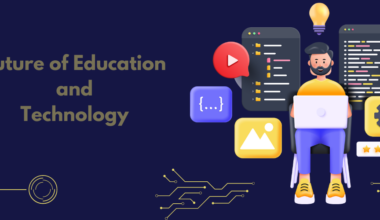What if you could chat with an advanced AI system named ChatGPT that can write about anything—academic papers, creative works, facts, and even witty remarks? What if this system, called ChatGPT, could also help you learn and improve various skills, such as critical thinking, problem-solving, communication, and creativity? Would you use it as a learning tool for your college education? Or would it be a potential danger?
ChatGPT is a text-based generative AI system, created by San Francisco-based firm OpenAI, capable of generating human-like text responses to a given prompt. It is one of the most sophisticated and impressive AI systems in the world, and it is accessible for anyone to try for free. But is ChatGPT a friend or a foe for a college education?
In this blog post, we will explore the role of ChatGPT in modern college education.
Benefits of ChatGPT for College Students
ChatGPT can be a useful tool for college education in several ways, such as:
- Enhancing Engagement and Motivation:
ChatGPT plays a crucial role in fostering student engagement and motivation within the college learning environment. By delivering personalized feedback and generating interactive questions, we tailor the educational experience to individual students. Furthermore, the ability to create diverse and stimulating content, such as poems, stories, jokes, and songs, serves to capture students’ interest and curiosity. The adaptability of ChatGPT to different learning styles contributes to a more enjoyable and effective learning experience.
- Supporting Skill Development:
In the world of skill development, ChatGPT proves to be a valuable ally for college students. It aids in the cultivation of critical thinking, problem-solving, communication, and creativity. Through guidance and assistance, it provides an additional layer of support for students who may require clarification or extra help. Additionally, ChatGPT exposes students to varied perspectives and information sources, encouraging them to reflect on and evaluate their learning processes and outcomes.
- Enriching Teacher Instruction and Assessment:
Teachers benefit from ChatGPT’s capabilities in designing and delivering engaging and effective instruction. The best B.Ed. colleges in Ghaziabad recognize the transformative impact of ChatGPT in shaping compelling and impactful instruction. Automation of tasks such as grading, feedback provision, and data analysis not only saves time and effort but also allows educators to focus on more nuanced aspects of teaching. Furthermore, ChatGPT provides valuable insights and recommendations, empowering teachers to refine their instructional strategies and enhance overall student performance.
Challenges of ChatGPT for College Education
ChatGPT presents challenges for college education, and it’s important to be aware of these issues:
- Reliability and Accuracy Concerns: ChatGPT may produce answers that sound plausible but are incorrect or nonsensical. Its responses can be inconsistent and vary based on how the questions are phrased. Without a source of truth or a means of verification, it’s crucial not to fully trust ChatGPT as the sole provider of information. Human experts should supervise and double-check their responses for accuracy.
- Risk of Plagiarism and Cheating: Given ChatGPT’s ability to generate high-quality and original content, there’s a temptation for students to use it as a shortcut for completing assignments. This poses a threat to academic integrity, as students might submit work without a genuine understanding. To maintain honesty in education, it’s imperative to caution students against using ChatGPT to replace their efforts. Educators should also implement monitoring and regulation to curb potential misuse.
- Ethical and Social Implications: ChatGPT raises ethical concerns surrounding human dignity, autonomy, and identity. There’s also the potential for bias, discrimination, and manipulation. In an educational setting, it can influence the dynamics between teachers and students, as well as among students. It’s crucial to use ChatGPT responsibly, aligning its use with the ethical principles of college education. This includes considering its impact on values, attitudes, and behaviors within the educational community and broader society.
Conclusion
ChatGPT serves as a valuable tool in college education, presenting advantages such as improving student engagement, supporting learning, and enhancing teacher instruction. Despite its merits, there are notable challenges, including concerns about reliability, accuracy, plagiarism, and ethical implications. It’s important to recognize that ChatGPT is a neutral entity—neither inherently good nor bad. Its impact on education hinges on how users employ it, necessitating careful consideration and thoughtful integration with the human aspect of teaching and learning.






